When it comes to materials with versatile applications, aluminium alloy powder stands out. This unique substance has transformed industries from aerospace to automotive, offering benefits that traditional materials simply can’t match. In this guide, we’ll dive deep into the world of aluminium alloy powder, exploring its types, properties, applications, and much more.
Overview of Aluminium Alloy Powder
Aluminium alloy powder is a finely divided form of aluminium combined with other metals to enhance its properties. It’s used extensively in manufacturing, thanks to its lightweight, corrosion resistance, and strength. But what exactly makes this material so special? Let’s break it down.
Key Features
- Lightweight: Significantly lighter than steel, making it ideal for applications where weight is a critical factor.
- Corrosion Resistance: Naturally resistant to rust and corrosion, increasing the longevity of products made from it.
- Strength: Offers a great balance of strength and ductility.
- Versatility: Can be used in a variety of applications from 3D printing to coatings.
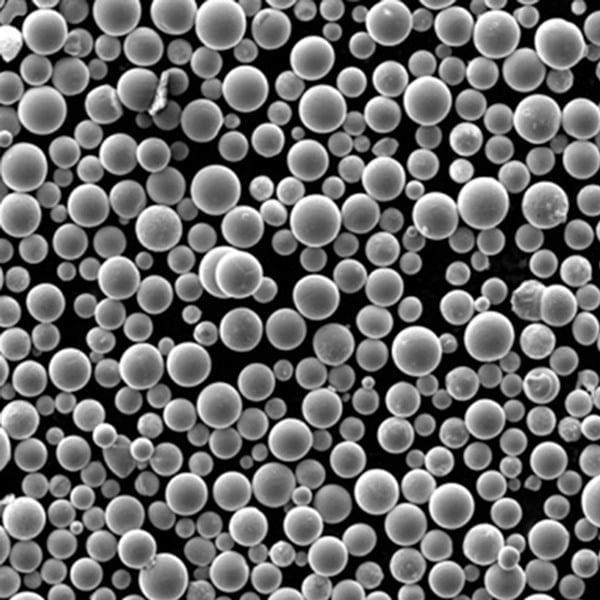
Types of Aluminium Alloy Powder
There are numerous types of aluminium alloy powder, each with its unique composition and properties. Below, we list some of the most common and specialized types available.
Common Aluminium Alloy Powders
| Model | Composition | Properties | Applications |
|---|---|---|---|
| AlSi10Mg | Aluminium, Silicon, Magnesium | High strength, good ductility | 3D printing, automotive |
| Al7075 | Aluminium, Zinc, Magnesium, Copper | Extremely high strength | Aerospace, military |
| Al2024 | Aluminium, Copper, Magnesium | Excellent machinability | Aircraft structures |
| Al6061 | Aluminium, Magnesium, Silicon | Versatile, good mechanical properties | General purpose, automotive |
| Al5083 | Aluminium, Magnesium, Manganese | Superior corrosion resistance | Marine applications |
| Al4047 | Aluminium, Silicon | Good wear resistance, low thermal expansion | Electronics, automotive |
| Al3003 | Aluminium, Manganese | Good corrosion resistance, moderate strength | Heat exchangers, piping |
| Al5052 | Aluminium, Magnesium | High fatigue strength, good weldability | Marine, pressure vessels |
| Al1100 | Pure Aluminium | Excellent corrosion resistance, good workability | Chemical equipment, sheet metal work |
| Al2618 | Aluminium, Copper, Magnesium, Iron, Nickel | High temperature strength | Aerospace, high-performance automotive |
Detailed Descriptions of Specific Models
- AlSi10Mg
- Composition: Primarily aluminium with 10% silicon and 0.3% magnesium.
- Properties: Known for high strength and good ductility. Silicon improves fluidity and reduces shrinkage during solidification.
- Applications: Widely used in 3D printing and automotive industries for lightweight and durable components.
- Al7075
- Composition: Aluminium with 5.6% zinc, 2.5% magnesium, and 1.6% copper.
- Properties: Extremely high strength and excellent fatigue resistance. However, it has less corrosion resistance compared to other alloys.
- Applications: Ideal for aerospace and military applications where strength is critical.
- Al2024
- Composition: Aluminium with 4.4% copper and 1.5% magnesium.
- Properties: Offers excellent machinability and high strength-to-weight ratio. Poor corrosion resistance without proper coatings.
- Applications: Commonly used in aircraft structures and parts requiring high strength and fatigue resistance.
- Al6061
- Composition: Aluminium with 1% magnesium and 0.6% silicon.
- Properties: Versatile with good mechanical properties and corrosion resistance.
- Applications: General-purpose alloy used in construction, automotive parts, and machinery.
- Al5083
- Composition: Aluminium with 4.5% magnesium and 0.7% manganese.
- Properties: Excellent corrosion resistance, especially in marine environments, and good weldability.
- Applications: Ideal for marine applications, pressure vessels, and armor plating.
- Al4047
- Composition: Aluminium with 12% silicon.
- Properties: Known for good wear resistance and low thermal expansion.
- Applications: Used in electronics, automotive parts, and as a brazing filler material.
- Al3003
- Composition: Aluminium with 1.2% manganese.
- Properties: Offers good corrosion resistance and moderate strength.
- Applications: Suitable for heat exchangers, chemical equipment, and piping.
- Al5052
- Composition: Aluminium with 2.5% magnesium.
- Properties: High fatigue strength, good weldability, and corrosion resistance.
- Applications: Used in marine environments, pressure vessels, and transportation equipment.
- Al1100
- Composition: 99% pure aluminium.
- Properties: Excellent corrosion resistance and good workability.
- Applications: Ideal for chemical equipment, food processing industries, and sheet metal work.
- Al2618
- Composition: Aluminium with 2.3% copper, 1.5% magnesium, 1% iron, and 1.1% nickel.
- Properties: High strength and good performance at elevated temperatures.
- Applications: Used in aerospace and high-performance automotive parts.
Applications of Aluminium Alloy Powder
Aluminium alloy powders are utilized across various industries due to their versatile properties. Here’s a look at some of the primary applications:
| Industry | Application |
|---|---|
| Aerospace | Aircraft components, satellite structures, engine parts |
| Automotive | Engine parts, transmission components, lightweight structures |
| Marine | Shipbuilding, underwater equipment, marine hardware |
| Construction | Structural components, roofing, facades |
| Electronics | Heat sinks, casings, conductive coatings |
| 3D Printing | Prototyping, custom parts, complex geometries |
| Military | Armor plating, weaponry, defense structures |
| Medical | Surgical instruments, implants, prosthetics |
Detailed Applications
- Aerospace
- Aluminium alloy powders like Al7075 and Al2024 are critical in aerospace for manufacturing lightweight and high-strength components. The low density and high strength-to-weight ratio are perfect for aircraft fuselages, wing structures, and engine parts.
- Automotive
- The use of aluminium alloy powders in the automotive industry helps reduce vehicle weight, improving fuel efficiency and performance. AlSi10Mg is commonly used for making engine parts and transmission components due to its excellent mechanical properties.
- Marine
- Alloys like Al5083 are preferred in marine applications for their superior corrosion resistance in seawater environments. This makes them ideal for shipbuilding, underwater equipment, and marine hardware.
- Construction
- Aluminium alloy powders are used in construction for making structural components, roofing materials, and facades. Al6061 is particularly popular for its good mechanical properties and versatility.
- Electronics
- The excellent thermal and electrical conductivity of aluminium alloys like Al4047 make them suitable for electronic applications such as heat sinks, casings, and conductive coatings.
- 3D Printing
- Aluminium alloy powders are extensively used in 3D printing for prototyping and producing custom parts with complex geometries. AlSi10Mg is a preferred choice due to its high strength and good ductility.
- Military
- The high strength and lightweight properties of aluminium alloys like Al7075 and Al2618 are invaluable in military applications, including armor plating, weaponry, and defense structures.
- Medical
- In the medical field, aluminium alloy powders are used to make surgical instruments, implants, and prosthetics. Their biocompatibility and lightweight properties make them ideal for these applications.
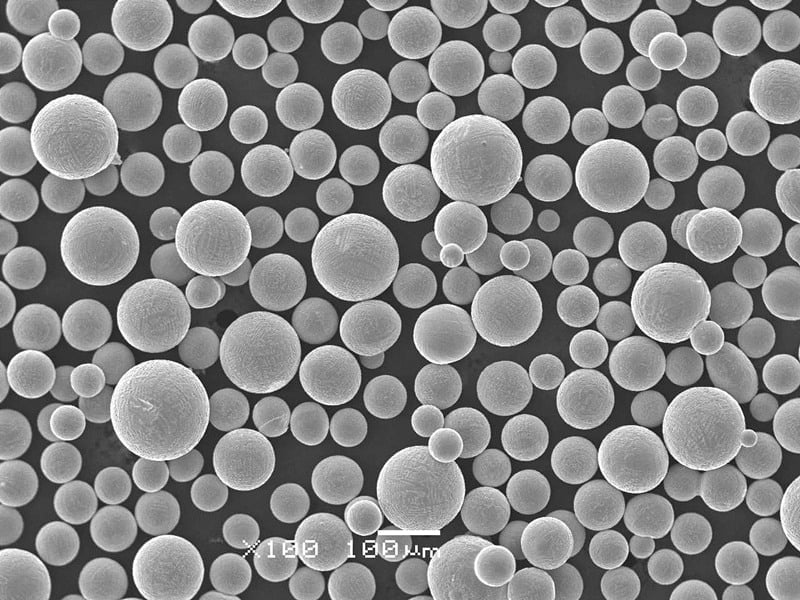
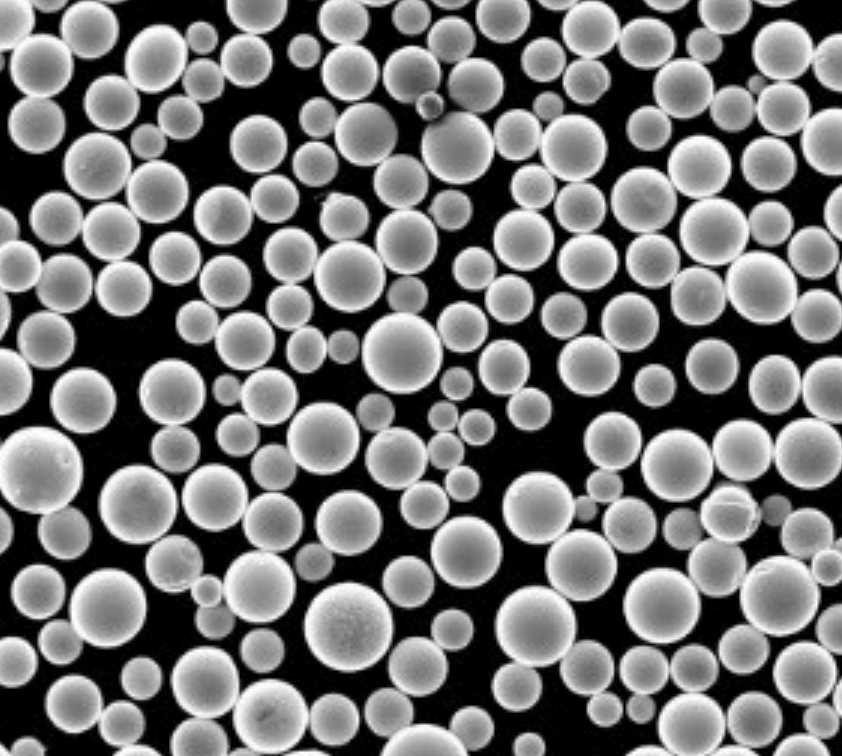
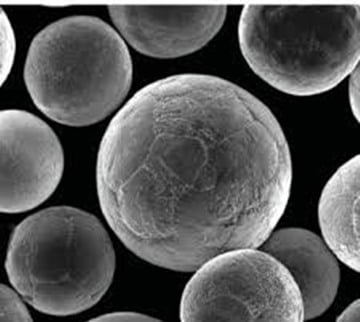
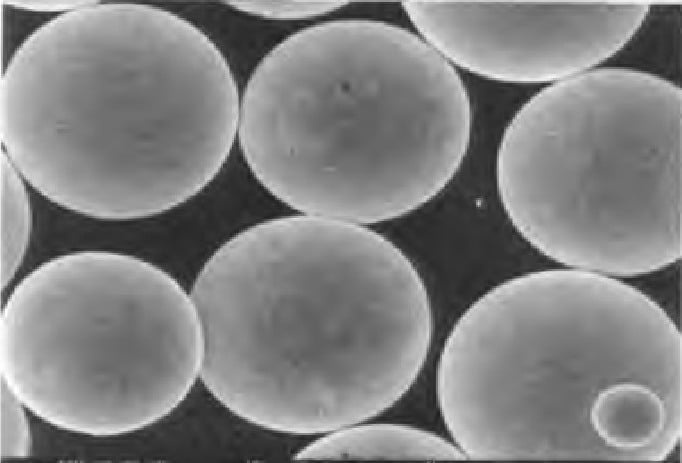
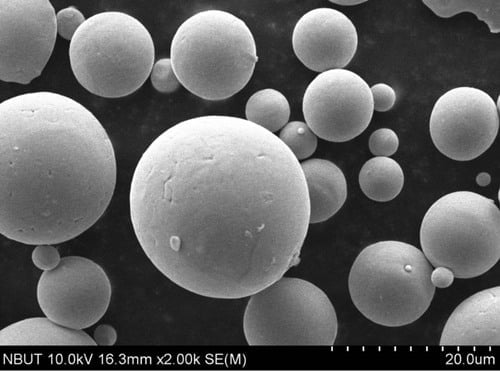
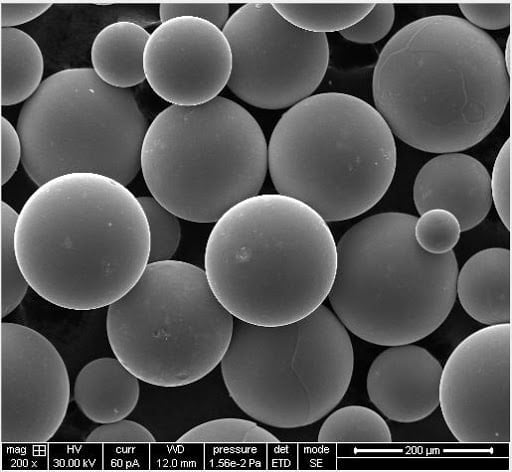
Advantages of Aluminium Alloy Powder
Why should you consider using aluminium alloy powder in your projects? Here are some compelling reasons:
Advantages
- Lightweight: Aluminium alloys are significantly lighter than many other metals, which is a major advantage in industries like aerospace and automotive.
- High Strength: Despite their lightness, aluminium alloys can offer high strength, making them suitable for structural applications.
- Corrosion Resistance: These alloys are naturally resistant to rust and corrosion, which extends the lifespan of products made from them.
- Versatility: Aluminium alloy powders can be used in a variety of applications, from 3D printing to marine engineering.
- Thermal Conductivity: They have excellent thermal conductivity, making them ideal for heat exchangers and electronic components.
- Recyclability: Aluminium is 100% recyclable, which makes it an environmentally friendly material choice.
Comparison of Advantages
| Feature | Aluminium Alloy Powder | Steel | Titanium |
|---|---|---|---|
| Weight | Very Lightweight | Heavier | Lightweight |
| Strength | High (varies by alloy) | Very High | Very High |
| Corrosion Resistance | Excellent | Poor without coating | Excellent |
| Thermal Conductivity | Excellent | Moderate | Poor |
| Cost | Moderate | Low | High |
| Recyclability | Excellent | Excellent | Moderate |
Disadvantages of Aluminium Alloy Powder
While aluminium alloy powder has many advantages, it also has some drawbacks to consider.
Disadvantages
- Cost: Aluminium alloys can be more expensive than some other metals, such as steel.
- Wear Resistance: Aluminium alloys generally have lower wear resistance compared to other materials like steel.
- Fatigue Resistance: Some aluminium alloys have lower fatigue resistance, which can be a limitation in high-stress applications.
- Machining Difficulty: Certain aluminium alloys can be more difficult to machine compared to other metals.
Comparison of Disadvantages
| Feature | Aluminium Alloy Powder | Steel | Titanium |
|---|---|---|---|
| Cost | Moderate to High | Low | High |
| Wear Resistance | Lower | High | Moderate |
| Fatigue Resistance | Moderate | High | High |
| Machining | Moderate Difficulty | Easier | Difficult |
Suppliers and Pricing of Aluminium Alloy Powder
Finding the right supplier for aluminium alloy powder can be crucial for your project’s success. Below is a list of some reputable suppliers and an overview of pricing.
Suppliers and Pricing
| Supplier | Location | Available Alloys | Price Range (per kg) |
|---|---|---|---|
| Höganäs AB | Sweden | AlSi10Mg, Al6061, Al7075 | $30 – $50 |
| Valimet Inc. | USA | AlSi10Mg, Al2024, Al5052 | $25 – $45 |
| AP&C (a GE Additive company) | Canada | AlSi10Mg, Al7075, Al6061 | $35 – $55 |
| Metal Powder and Process Ltd. | UK | AlSi10Mg, Al3003, Al1100 | $20 – $40 |
| ECKART | Germany | AlSi10Mg, Al5083, Al4047 | $28 – $48 |
Factors Affecting Pricing
- Alloy Type: Higher strength or specialized alloys tend to be more expensive.
- Quantity: Bulk purchases usually offer a lower per kilogram price.
- Purity: Higher purity powders cost more due to additional processing requirements.
- Supply Chain: Geographic location and supplier logistics can influence prices.
Specifications, Sizes, Grades, and Standards
Aluminium alloy powders come in various specifications, sizes, grades, and adhere to different standards. Here’s an overview to help you navigate the options.
Specifications and Sizes
| Specification | Size Range (Microns) | Grade |
|---|---|---|
| AlSi10Mg | 20 – 63 | Aerospace Grade |
| Al7075 | 10 – 45 | Military Grade |
| Al2024 | 15 – 50 | Aircraft Grade |
| Al6061 | 20 – 63 | General Grade |
| Al5083 | 30 – 100 | Marine Grade |
| Al4047 | 10 – 45 | Electronics Grade |
| Al3003 | 20 – 63 | Industrial Grade |
| Al5052 | 25 – 75 | Marine Grade |
| Al1100 | 30 – 100 | Commercial Grade |
| Al2618 | 10 – 45 | High-Performance Grade |
Standards
- ASTM B928/B928M: Standard Specification for High Magnesium Aluminum-Alloy Sheet and Plate for Marine Service.
- AMS-QQ-A-250: Aluminum and Aluminum Alloy Plate and Sheet.
- ISO 8062-3: Geometrical Product Specifications (GPS) – Dimensional and geometrical tolerances for moulded parts.
- EN 485-2: Aluminium and aluminium alloys – Sheet, strip, and plate.
Pros and Cons of Aluminium Alloy Powder
Understanding the pros and cons of aluminium alloy powder can help you make informed decisions for your projects.
Advantages and Limitations
| Pros | Cons |
|---|---|
| Lightweight | Higher cost compared to some metals |
| High strength-to-weight ratio | Lower wear resistance |
| Excellent corrosion resistance | Moderate fatigue resistance |
| Good thermal conductivity | Machining difficulty |
| Versatile applications | Requires careful handling and storage |
| Recyclable | Limited high-temperature performance in some alloys |
Comparison with Other Materials
How does aluminium alloy powder stack up against other materials like steel and titanium? Let’s compare.
Aluminium Alloy Powder vs. Steel
- Weight: Aluminium alloys are much lighter than steel, making them preferable for weight-sensitive applications.
- Strength: While steel is stronger overall, certain aluminium alloys offer a comparable strength-to-weight ratio.
- Corrosion Resistance: Aluminium alloys generally have better corrosion resistance than steel, especially in marine environments.
- Cost: Steel is typically cheaper, but aluminium’s other benefits can justify the higher price.
Aluminium Alloy Powder vs. Titanium
- Weight: Both are lightweight, but titanium is slightly heavier than aluminium.
- Strength: Titanium offers higher strength but at a higher cost.
- Corrosion Resistance: Both materials are highly resistant to corrosion, but titanium performs better in extreme environments.
- Cost: Titanium is more expensive, which can be a limiting factor for some applications.
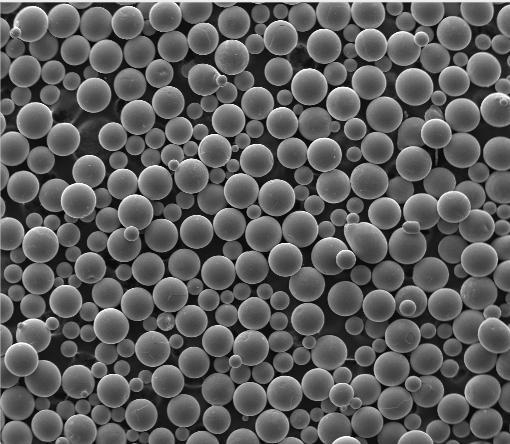
FAQ
Frequently Asked Questions About Aluminium Alloy Powder
| Question | Answer |
|---|---|
| What is aluminium alloy powder? | It’s a finely divided form of aluminium combined with other metals to enhance its properties. |
| What are the benefits of using aluminium alloy powder? | It offers lightweight, high strength, corrosion resistance, and versatility in various applications. |
| Which industries use aluminium alloy powder? | Aerospace, automotive, marine, construction, electronics, 3D printing, military, and medical. |
| How is aluminium alloy powder made? | It’s typically produced through atomization, where molten aluminium is dispersed into fine droplets that solidify into powder form. |
| Can aluminium alloy powder be recycled? | Yes, aluminium alloy powder is 100% recyclable, making it an environmentally friendly material. |
| What are the common types of aluminium alloy powder? | Some common types include AlSi10Mg, Al7075, Al2024, Al6061, and Al5083. |
| What factors affect the price of aluminium alloy powder? | Alloy type, quantity, purity, and supplier logistics can influence pricing. |
| Is aluminium alloy powder safe to use? | Yes, but it requires proper handling and storage to prevent oxidation and ensure safety during processing. |
| How do I choose the right aluminium alloy powder for my project? | Consider the specific properties needed for your application, such as strength, corrosion resistance, and thermal conductivity. |
| What are the limitations of aluminium alloy powder? | Higher cost, lower wear resistance, moderate fatigue resistance, and machining difficulties are some limitations. |
Conclusion
Aluminium alloy powder is a game-changer across numerous industries, offering a unique combination of lightness, strength, and versatility. From aerospace to medical applications, its benefits are unmatched, making it a material worth considering for your next project. By understanding the types, properties, and applications of aluminium alloy powder, you can make informed decisions that enhance your products and processes.
About 3DP mETAL
Product Category
CONTACT US
Any questions? Send us a message now! After receiving your message, we will process your request with a whole team.
